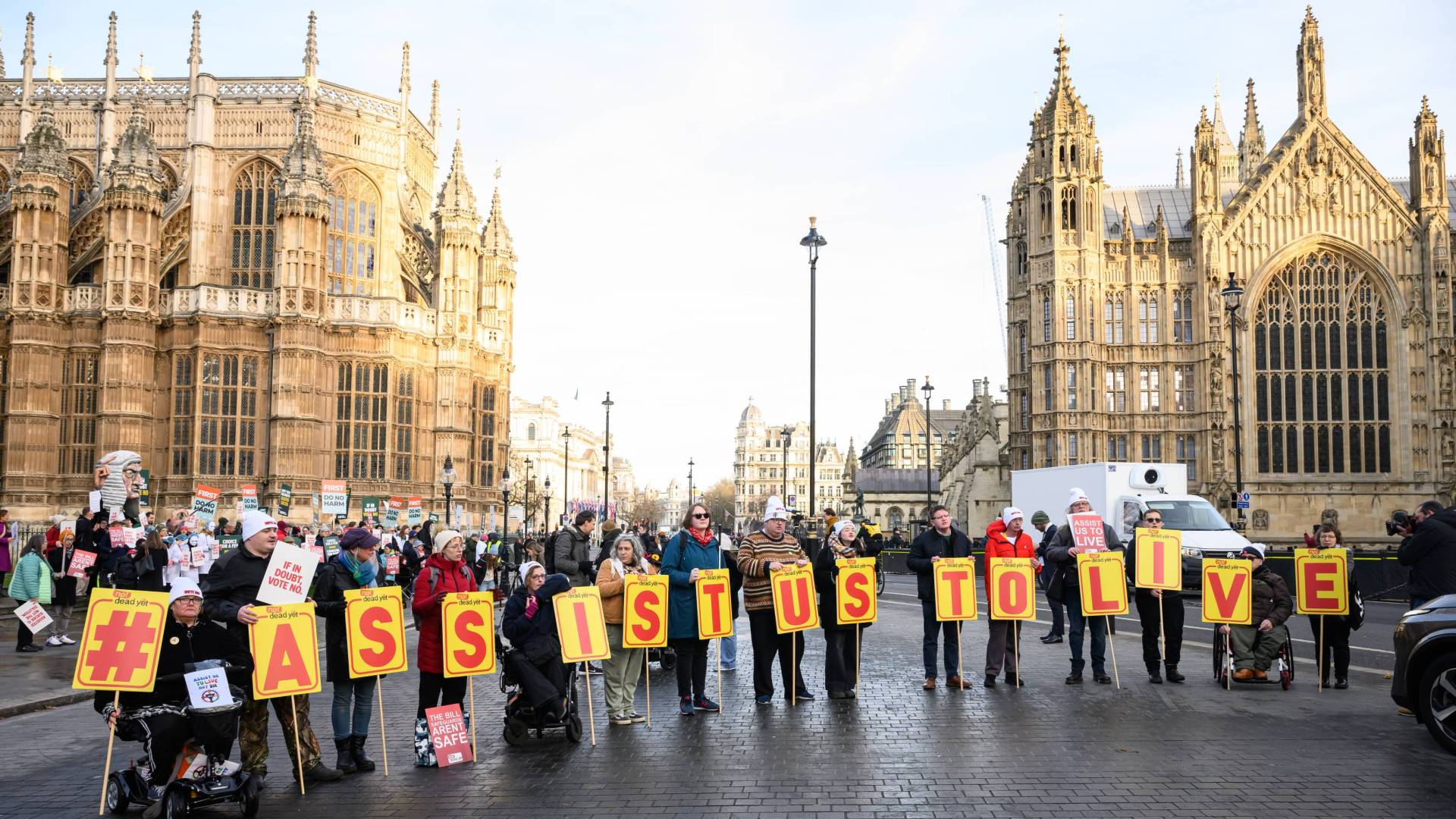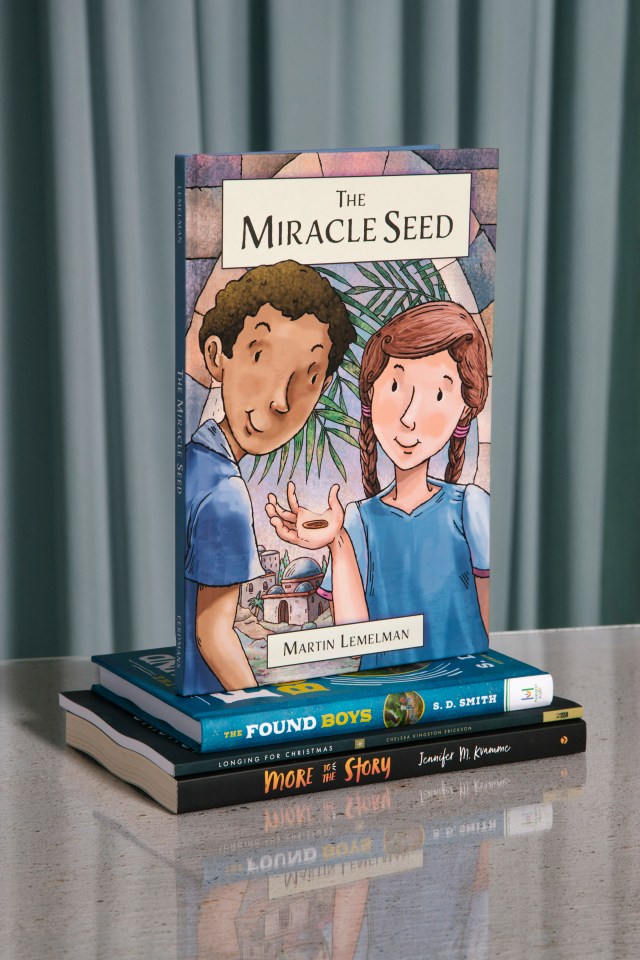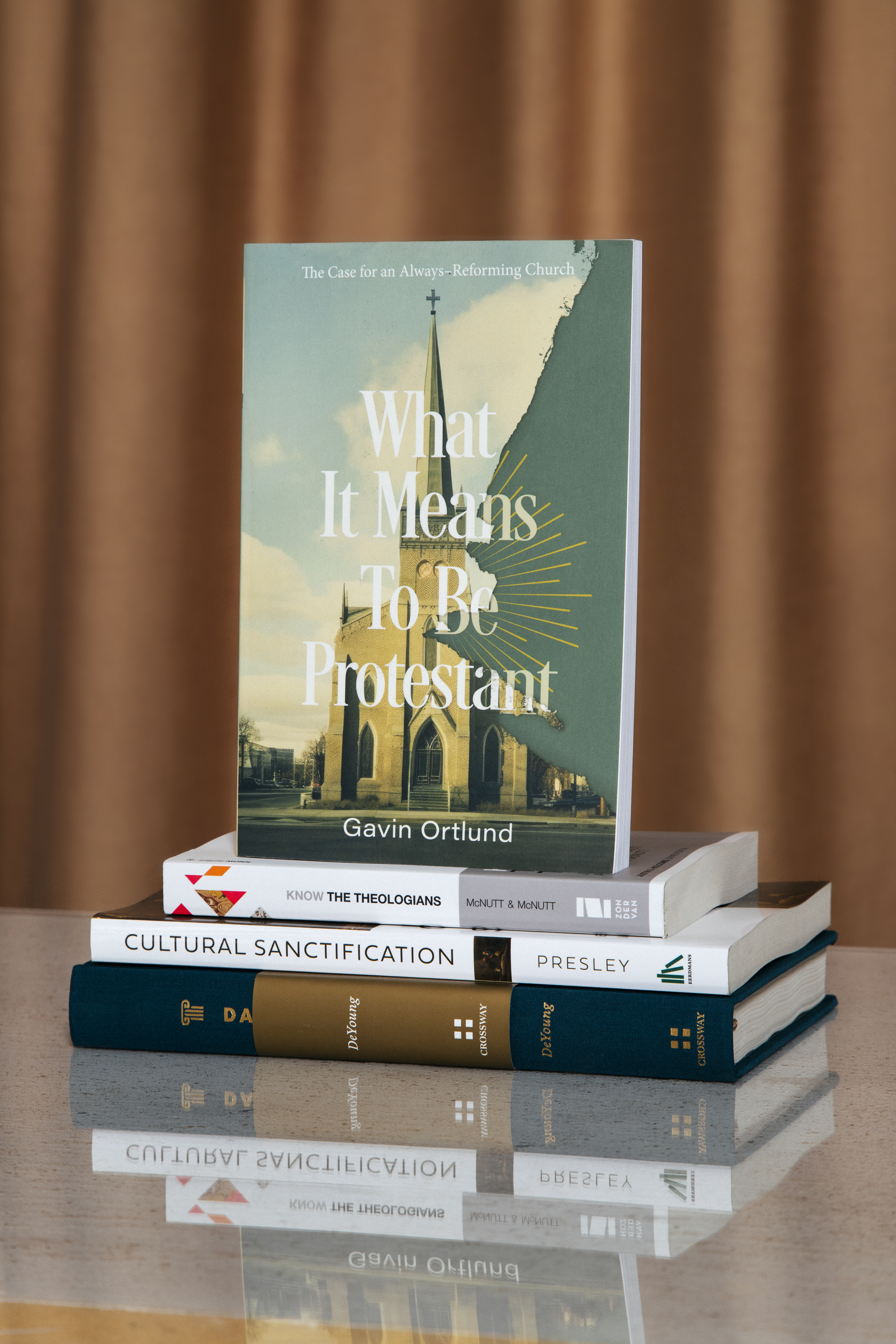The streaming platforms are going biblical. Amazon has House of David, from one of the codirectors of Jesus Revolution, coming next year. Netflix released the multifaith docuseries Testament: The Story of Moses last spring. (It was one of their top 20 TV shows in the first half of this year.)
Now Netflix has picked up its first original Bible movie: Mary, a film about Jesus’ mother, starring Bible-movie veteran Anthony Hopkins (Peter and Paul, Noah) as King Herod.
The film, which starts streaming this Friday and counts megachurch pastor Joel Osteen as one of its executive producers, isn’t your typical Christmas movie. For one thing, it dramatizes not only the birth of Jesus but also the birth of Mary, following an ancient tradition—well known in Orthodox and Catholic circles—that says her birth was a miraculous answer to her own parents’ prayers.
The film has more violence than some viewers might expect, enough to earn it a TV-14 rating. Much of it involves the cruelty of King Herod, though Joseph (Ido Tako) also grabs tools and weapons to protect Mary (Noa Cohen) from various threats: Herod’s soldiers, a judgmental mob, even Satan himself (Eamon Farren).
Lately, Mary has been controversial for another reason, with some calling for a boycott over the film’s use of Jewish Israeli actors in many of the key roles, including Mary, her parents, her cousin Elizabeth (Keren Tzur), and Joseph.
CT spoke with director D. J. Caruso (Disturbia, Redeeming Love), who is Catholic, about the conversation around Mary and what he hopes audiences will take away from the film. This conversation has been edited for length and clarity.
The producers of Mary have been trying to make a movie about her for quite some time, since at least 2009. How recently did you get involved? What finally got the project off the ground?
Well, what finally got it off the ground is that I got passionate.
I was looking for a story about Mary, and I had read some screenplays over the years. They just weren’t presenting anything different or new. Then this came to me. I read it and I thought, “Wow, this is great.”
I know the movie has had a long journey, but for me, it’s been only 16 intense months with the project. I put my head down and said, “I’m going to give it to you, Lord.”
This film gets into the birth of Mary herself, which is not in the Bible. I’ve seen some Protestants say, “Well, this movie is going to be very Roman Catholic because it has the miraculous birth of Mary, so it’s not for us.” But I’ve also seen Catholics object to the trailer because it shows Mary experiencing labor pains when Jesus is born.
How were these creative decisions made, keeping in mind your anticipated audience?
Well, where to start. First of all, regarding the labor pains: That’s about presenting Mary in a human way, acknowledging that she had apprehensions. I think something like a third of women died in childbirth in antiquity.
I also wanted to get at the transformative, beautiful moment when a mother gives birth to a child. Every mother has experienced it, right? The mother Mary is giving birth to the Son of God, to Christ. This is my interpretation of what that would be like.
Now to answer your other question: I grew up Catholic and always knew something about Mary’s parents: Saint Joachim (played by Ori Pfeffer) and Saint Anne (Hilla Vidor). But who are they really? Why are we celebrating them?
I went to the Protoevangelium of James and looked at the story of Mary told there. Also the historian Josephus gave me a lot about the geopolitical situation. Using these texts, I was able to put together this narrative.
But just because you see the birth of Mary doesn’t mean the movie is particularly Catholic. It’s really just a celebration of her as the mother of God. This is the story we chose to tell, and it is for everybody.
I’ve seen the film twice now, and the second time in particular, I was struck by how powerful it was to see, early on, the scene of Anne giving birth to Mary. Then Anne is there when Mary gives birth to Jesus.
You imagine that Anne on some level is reliving what she’s been through.
That’s exactly why she’s there. The actresses were committed to making the connection between mother and daughter and the birth of Christ.
The film also expands the role of Anna the Prophetess (Susan Brown), who appears with Simeon in Luke 2 but doesn’t have any dialogue.
In the film, she’s a mentor to Mary as she’s growing up in the Temple, and we don’t see Simeon (David Gant) until the very end. Why is Anna a much bigger part of the story?
I give credit to Tim [screenwriter Timothy Michael Hayes] for that. I think the idea was to give Mary a protector.
It’s really about Isaiah’s prophecy, right? (Isa. 7:14). If Anna is a prophetess, she understands—maybe not exactly—the beauty and the power of Mary and why Mary’s coming to the Temple.
The film is also very violent. You’ve got Herod killing everybody in his family—which, yes, Herod did do—and eventually you’ve got Joseph himself taking up arms in self-defense.
This might not be the sort of film that families are expecting to get all cozy with after they’ve opened their Christmas presents.
Mary and Joseph fled because the Roman soldiers were coming for them. Well, what happens if a Roman soldier happens to be in the house next door and traps you in the room where you’re hiding? Fire to me represents purification. And so I put them in a burning house.
Joseph really has no voice in the Gospels. (There’s one exchange with him and the angel Gabriel.) What would it be like to be a young man thrown into this situation? What would the decisions be? How would you go against the mob?
It’s not easy for young men today to go against the mob. Joseph could be a great role model: “Look, I’m going to follow my heart. I’m going to do what I know is right; I’m not going to do what you tell me is right.”
And then there’s Herod: the Roman Empire, the geopolitical struggles. Herod killed his wife and his own sons (which we didn’t even include). He takes down people because he’s paranoid.
So yes, there’s going to be a little bit of action; it’s going to be a cinematic experience. I wanted the movie to have movement. But it’s not like Mary’s an action hero.
A controversy has emerged recently over casting Israeli actors in the film. Can you talk a little about that?
When I started to cast the film, we looked all over the world. I wanted to get someone from the region where Mary was born to play her. That was my goal. I felt like if we could find a great young Jewish actress, that would be amazing.
When I saw Noa’s audition—there are certain things you just know. So I got her on the phone, we started working together, and she was my Mary.
I felt blessed to say, wow, there’s this authenticity of this young Jewish woman playing a young Jewish woman. I thought that was fantastic. But obviously, this horrible war in the aftermath of October 7—the world is in upheaval.
I just know that Noa did an amazing job. She’s a fantastic actress. She’s got this grace and beauty, and at the same time, she’s accessible. I’m so proud of her performance, and I think it should be celebrated. It has nothing to do with politics.
The idea of the movie is to spread love, and art is hopefully a uniter. It’s not supposed to be something that separates anybody.
Peter T. Chattaway is a film critic with a special interest in Bible movies.


























































































